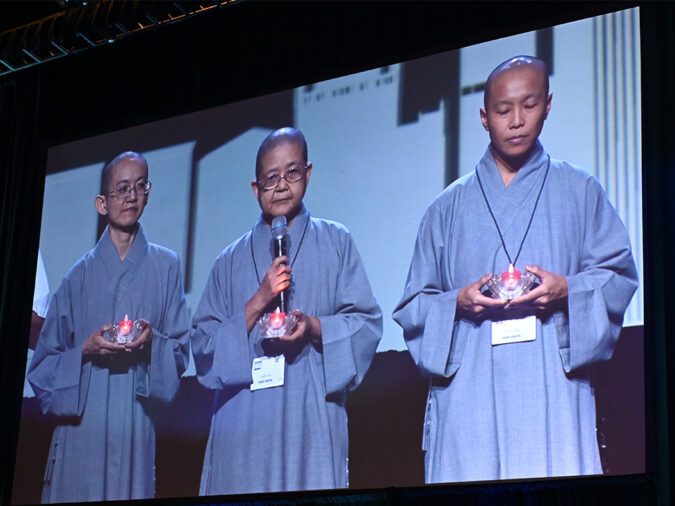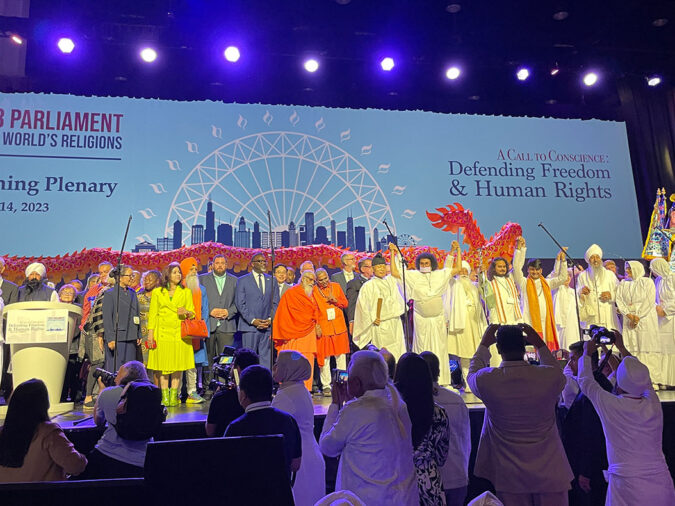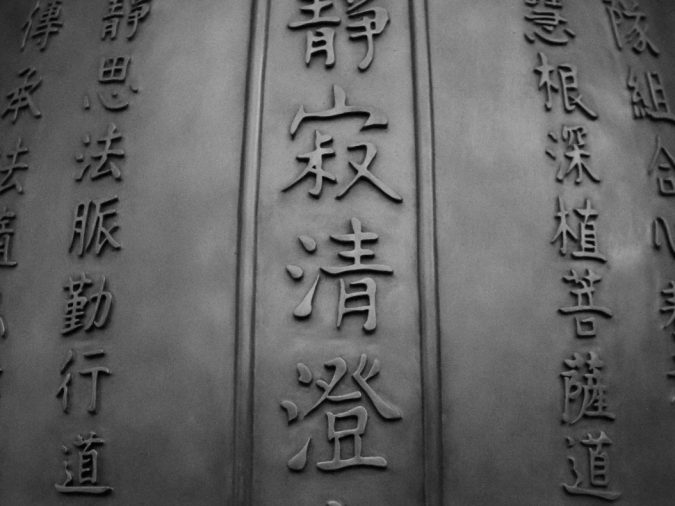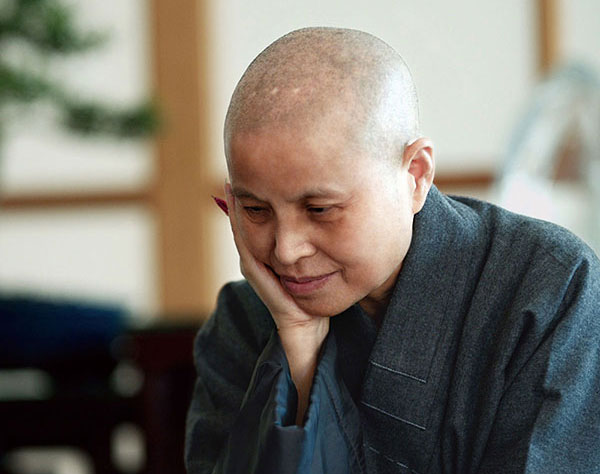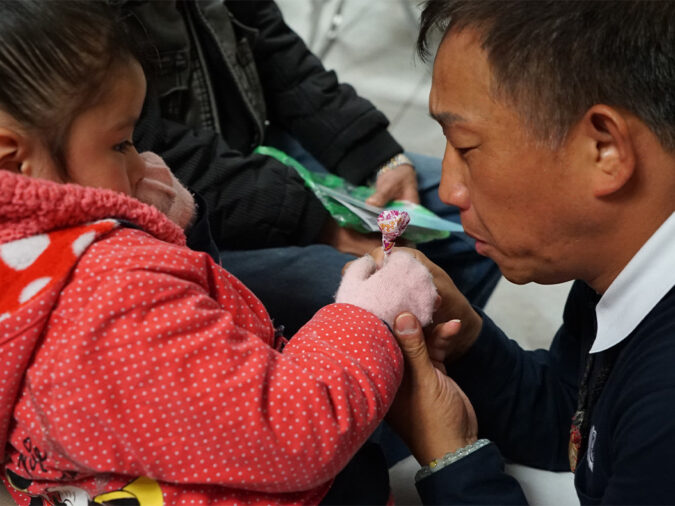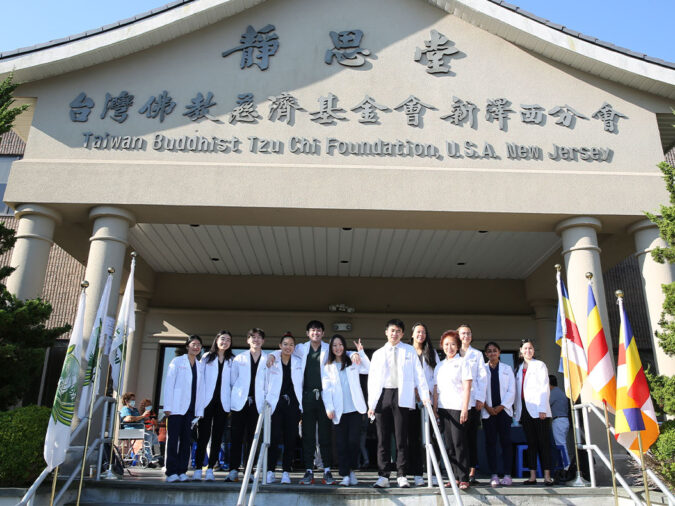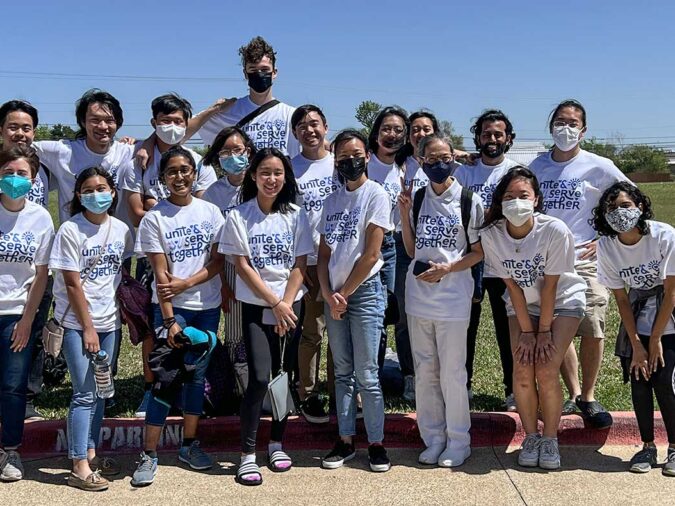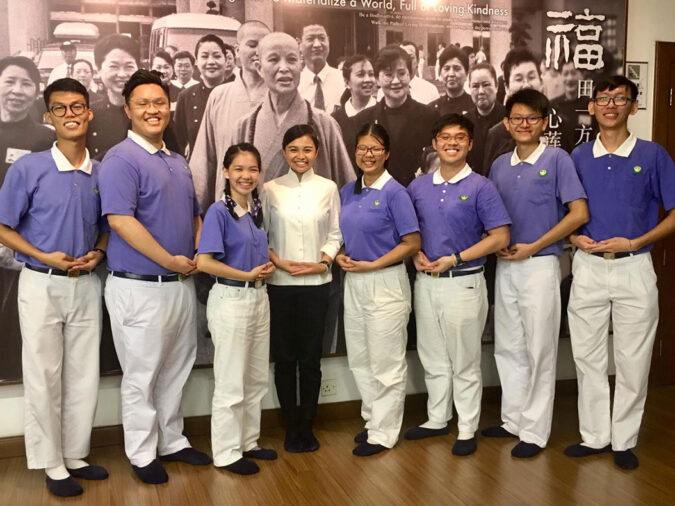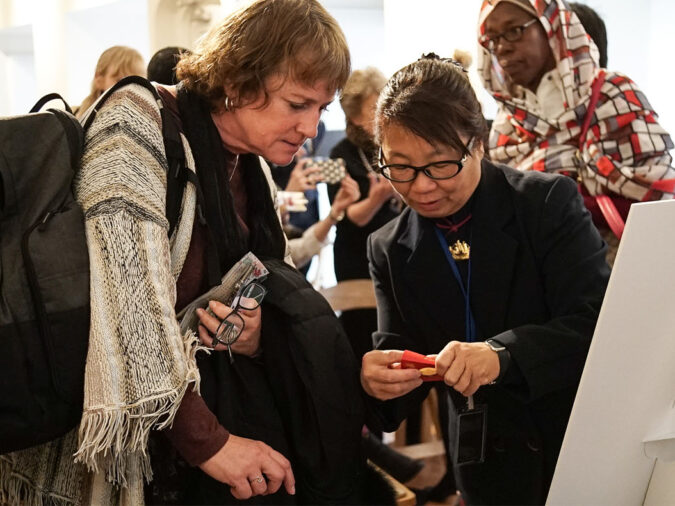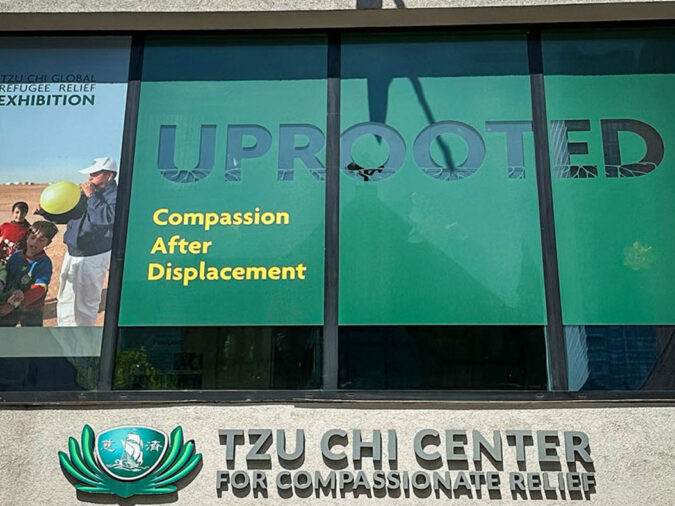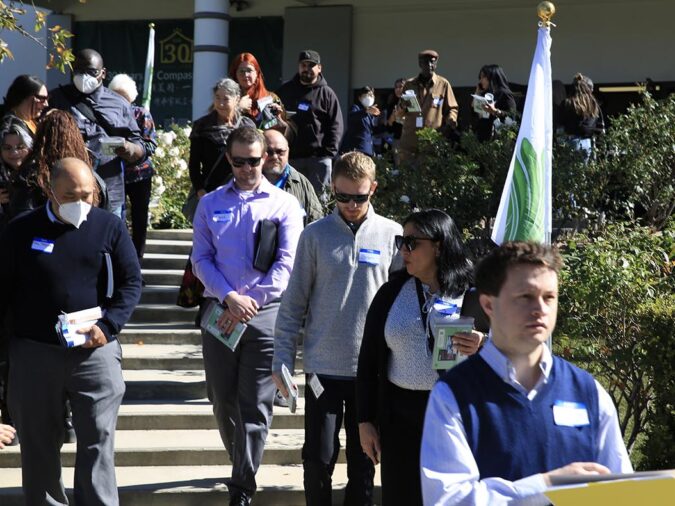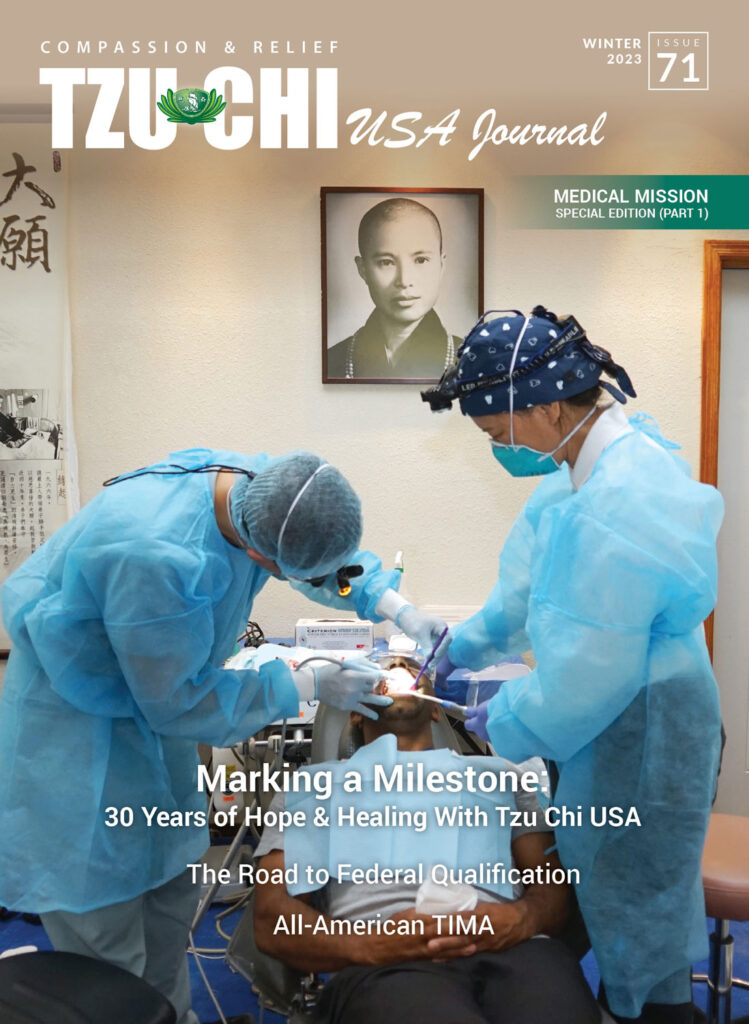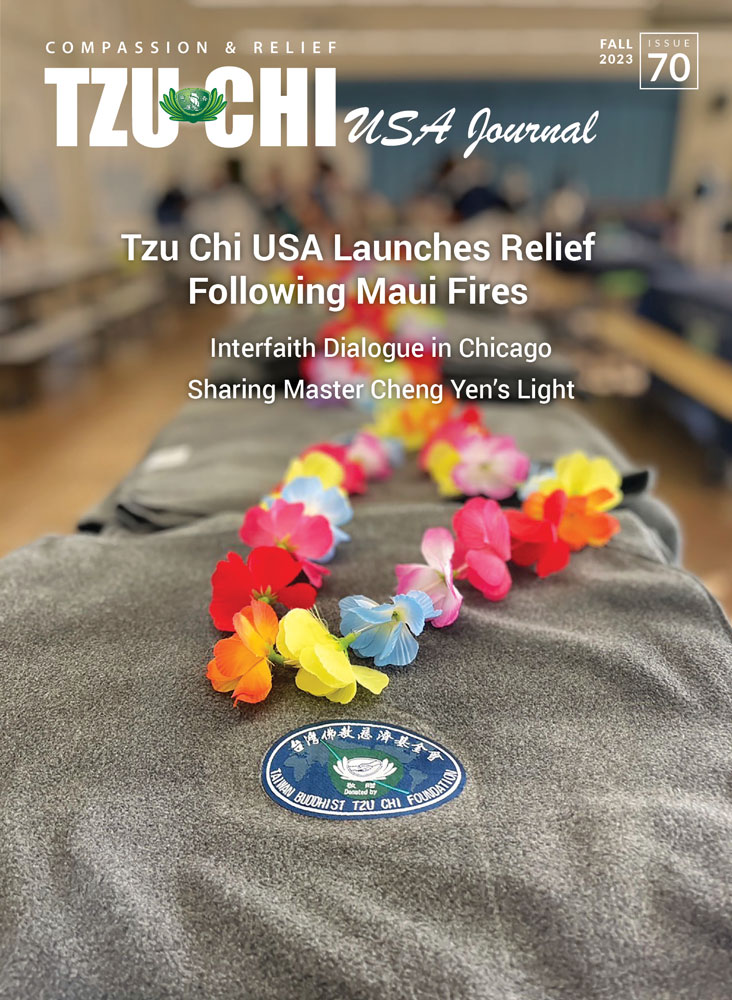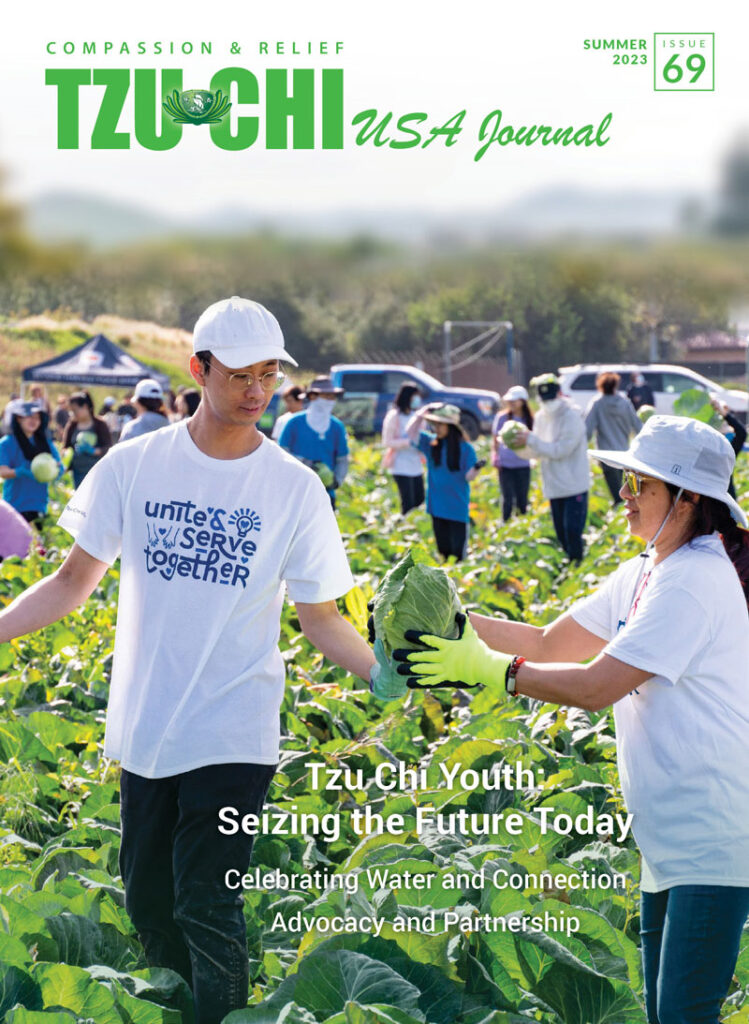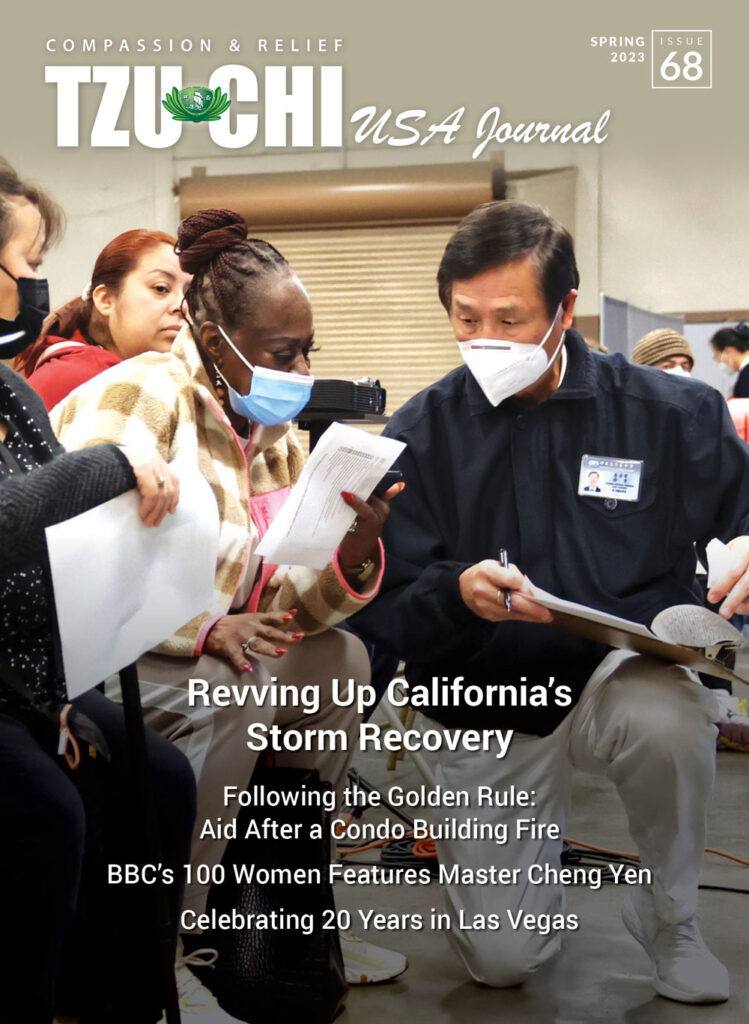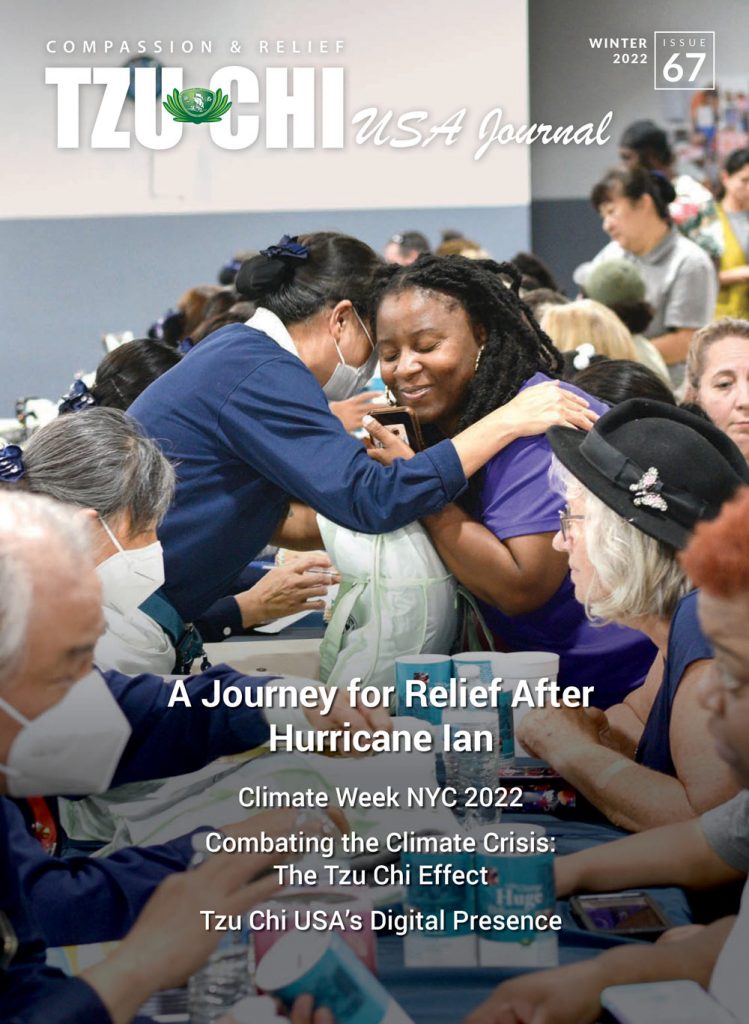Attendees gather for the ninth Tzu Chi Global Symposium for Common Goodness at Harvard University. Photo/Hui Liu
SHARE
Followers of the Venerable Dharma Master Cheng Yen (the founder of Tzu Chi), including Tzu Chi volunteers and supporters around the world, have long known and embraced her message of compassion in action, reaped its spiritual benefits, and witnessed its profound impacts. Yet, while she has received global recognition for her work, including being named as one of TIME Magazine’s 100 Most Influential People of 2011 and, more recently, BBC’s 100 inspiring and influential women of 2022 (among many other accolades), never-before has Ven. Cheng Yen’s leadership style, as well as its impact and implications for leadership in the 21st century, been put under a scholarly microscope—until now.
From September 3rd to 4th, 2023, twelve world-renowned scholars and guests from nine countries came together for a landmark event: the “Symposium on the Venerable Cheng Yen’s Philosophy and Leadership.” It took place at the Geological Lecture Hall at the prestigious Harvard University in Cambridge, Massachusetts, marking a historic collaboration between co-hosts the Buddhist Tzu Chi Charity Foundation and the Harvard Faculty of Arts and Sciences Chinese Art Media Lab (or Harvard FAS CAMLab), as well as support from Tzu Chi USA. It is also the ninth official Tzu Chi Global Symposium for Common Goodness, a platform intended to foster a holistic understanding of Ven. Cheng Yen’s teachings and exploration of the possibilities for Tzu Chi’s movement to inspire ‘compassion in action.’
Divided into two days, academics presented twelve scholarly papers, collectively examining different categories across three sessions. They included Ven. Cheng Yen’s social impact, her philosophy, and her life and work in a historical context. The event also included two grand discussions on Buddhism and interreligious engagement and Tzu Chi’s global charity, as well as a signing ceremony, presentations of certificates. A vegetarian banquet, too, was prepared by volunteers from the Tzu Chi USA Boston Service Center at the finale of day two for all guests. These were the Symposium’s main takeaways.
The Importance of Scholarly Inquiry
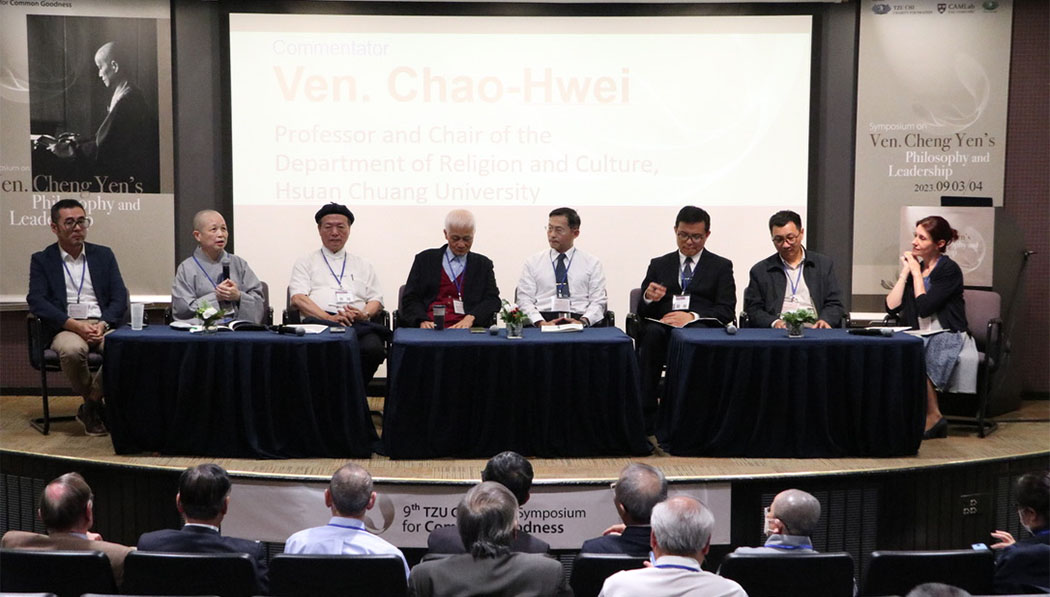
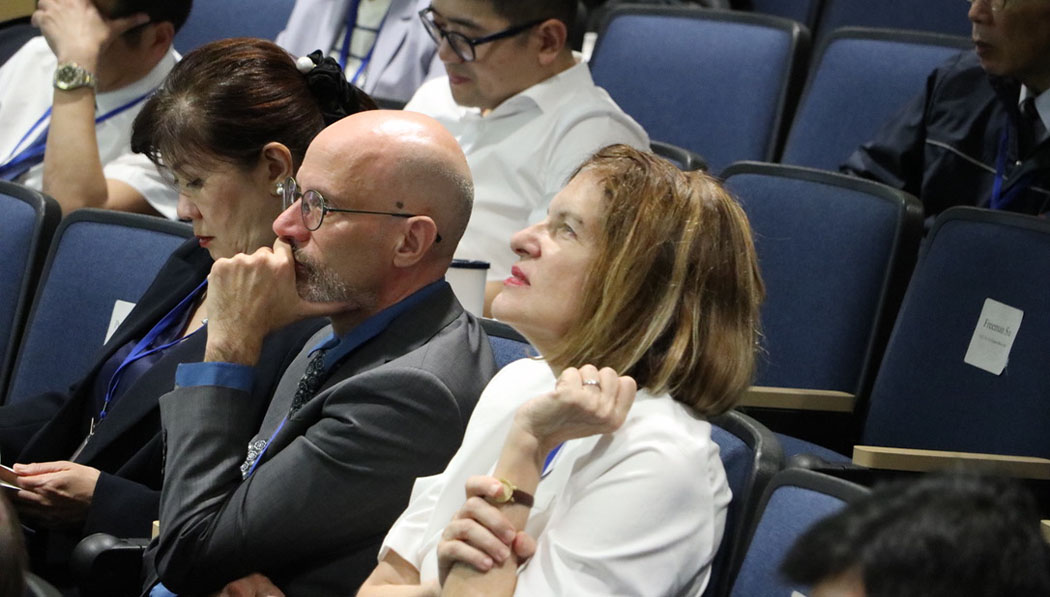
As the first day of the Symposium began, the need for a scholarly examination of Ven. Cheng Yen’s life and work was made clear. Because both her humanitarian efforts and her role as the founder of Tzu Chi are of global significance, coupled with the fact that because spiritual and religious leaders are often revered without a critical analysis of their contributions to society, it was made evident that a bridge was necessary between spiritual reverence and academic inquiry. Many scholars in attendance agreed, like Caroline Reeves, a Research Associate at the Fairbank Center for Chinese Studies at Harvard University:
It's just a great opportunity for scholars, practitioners, volunteers to come together and talk about all the important things that Tzu Chi does and to discuss them in a scholarly way.
Presenting the paper, “Tzu Chi and Dharma Master Cheng Yen: Towards an Understanding of Post-Gendered Giving,” Reeves elaborated that an academic inquiry into Ven. Cheng Yen was crucial in learning how one can create profound social impact, regardless of gender. “Talking about this topic, it’s exciting… because Master Cheng Yen themselves really doesn’t see themselves as a gendered individual,” she explained; “they’ve taken the best parts of giving, male and female, and they’ve created a post-gendered kind of compassionate giving.”
At the same time, fellow scholar Stefania Travagnin, a Reader in Chinese Buddhism at the SOAS (School of Oriental and African Studies) University of London, offered another reason why scholarly examination was important. Presenting the paper, “Thus Has She Spoken: Master Cheng Yen’s Words as a New Buddhavacana,” Travagnin recalled how she first heard about Ven. Cheng Yen while preparing a dissertation on Buddhist nuns in Taiwan back in 1998. She found the way Ven. Cheng Yen transmitted the teachings of Buddhism, including theatrical performances that interpreted them, fascinating:
Something… that’s interesting is how she talks about Buddhism without talking about Buddhism, and so being able to attract people who are not Buddhist.
Yet, by being able to create broad appeal and reach others unfamiliar with ancient scriptures, particularly those as rich and as complex as the Lotus Sutra, Ven. Cheng Yen was creating a new school of Buddhism, all her own.
The Tzu Chi School of Buddhism
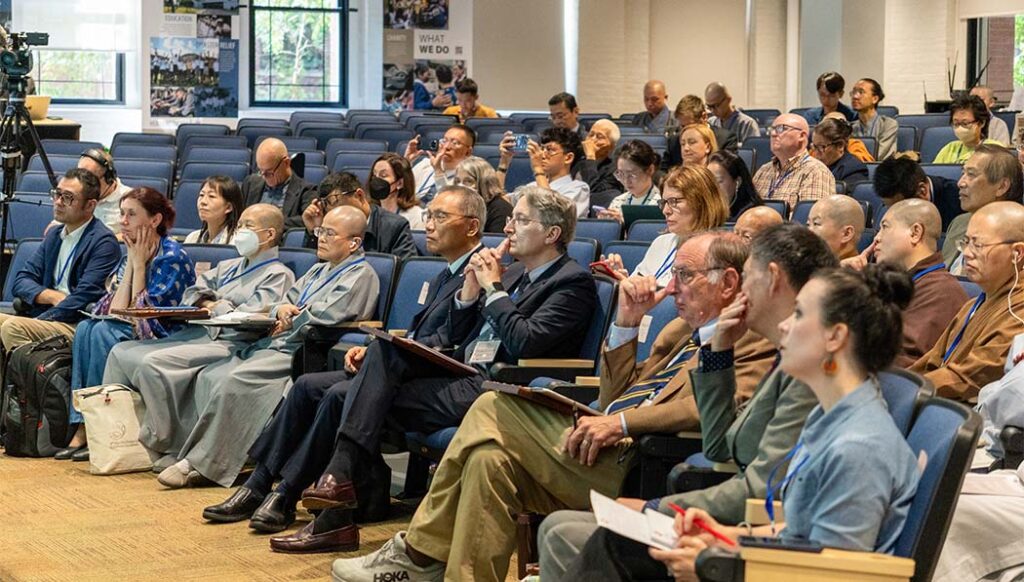
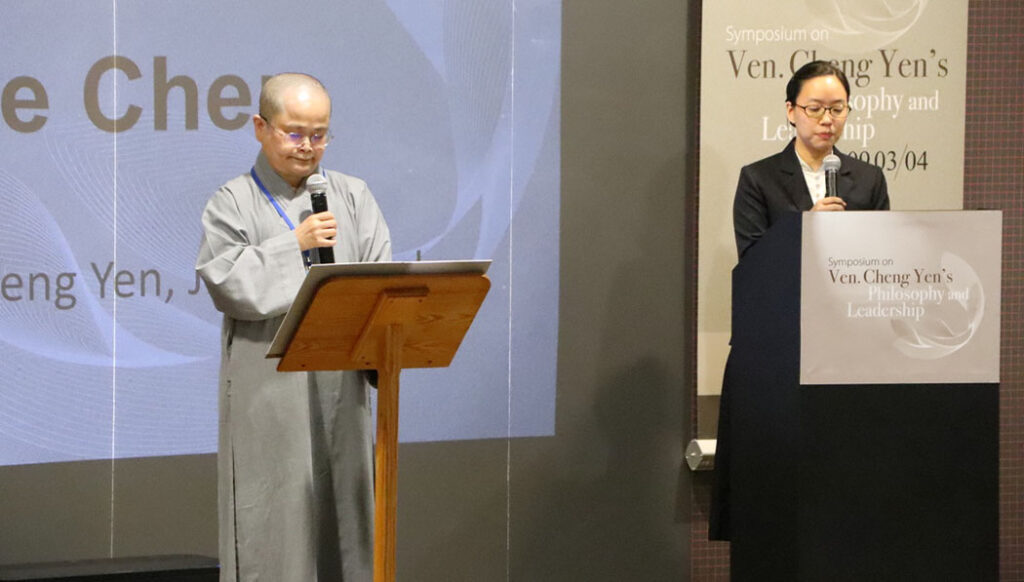
By placing heavy emphasis on core principles such as compassion, kindness, and altruism, the Symposium illuminated the distinctness of Ven. Cheng Yen’s teachings as the “Tzu Chi School of Buddhism.” To put it simply, Dr. Rey-Sheng Her, Associate Professor of Religion and Humanities at Tzu Chi University, said that unlike Zen, a popular school of Mahayana Buddhism which traditionally focuses on meditation, Tzu Chi’s school regards altruistic action as the main pathway to achieve “the ultimate enlightenment.”
Doing so, Ven. Cheng Yen “puts a strong emphasis on doing in explaining the Bodhisattva path and Bodhisattva precepts,” further elaborates Pei-Ying Lin. She’s an Assistant Professor at the Center for Buddhist Philosophy at National Chengchi University. Presenting the paper “The Bodhisattva Path of Venerable Cheng Yen in Contemporary Taiwan,” Lin also made clear that focusing on ‘doing’ does not mean neglecting study and understanding of Buddhist doctrines. At the podium, she clarified:
[Ven. Cheng Yen] affirms that understanding the correct meaning of Buddhism is very important.
For those who put the Tzu Chi School of Buddhism into practice, including many Tzu Chi volunteers, disconnects may still occur. Rosalie Chen, a Tzu Chi volunteer who flew in from Taiwan to help with translation to and from Chinese, highlighted the Symposium’s importance for those who put Tzu Chi’s missions of charity, medicine, education, humanistic culture, environmental protection, and more into motion: “[It] helps us as Tzu Chi volunteers to really think about the philosophy behind what we are doing. So, often we are actually just busy doing the work, but we’re not thinking about the significance, the deeper meaning behind it.”
Implications for Leadership in the 21st Century
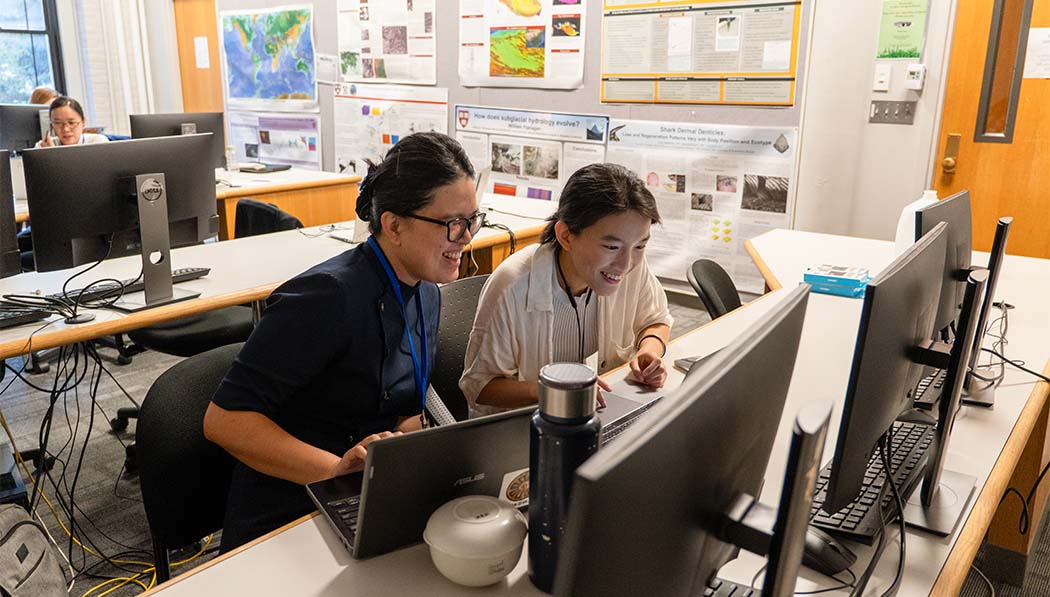
Perhaps the most significant outcome of the Symposium was the recognition of the valuable contributions that Tzu Chi’s organizational operations and core principles can offer to 21st century leadership across various fields. For scholars like Herman B. Leonard, Professor of Business Administration at the Harvard Business School, the ‘case of Tzu Chi’ is one that he requires his students to study, “because it has such powerful insights about the world, and about the world they will be trying to accomplish things in.” He elaborates:
It challenges our ordinary thinking, about how to make things happen in the world, about how to mobilize people, and how to take actions, how to figure out what to do, how to make progress in the world; it challenges our received understanding, our conventional wisdom about management and leadership.
For example, when responding to disasters around the world, Leonard illuminates that “Tzu Chi doesn’t have a strategic planning process for disaster relief. What it has, and this is an important concept, it has a strategically designed adaptive process for rapidly figuring [it] out.” This ability to assess situations, understand its most pressing needs, and offer solutions with accessible resources is a cornerstone of any relief project undertaken by Tzu Chi volunteers around the planet, be it a response to a flood, fire, earthquake, or any other catastrophe.
At the same time, Leonard also reflected on Tzu Chi’s dynamism during a disaster. “Operating in such an environment, you have to be nimble and adaptive,” he explains. As situations on the ground may be constantly changing, Leonard insists that one of Tzu Chi’s greatest assets derives from “its ability to adapt rapidly to situations—every one of which is different and no one ever saw this one before.” By doing so, he adds, Tzu Chi as an organization is both “effective and reliable,” offering valuable lessons for students across many disciplines.
A Milestone for Tzu Chi
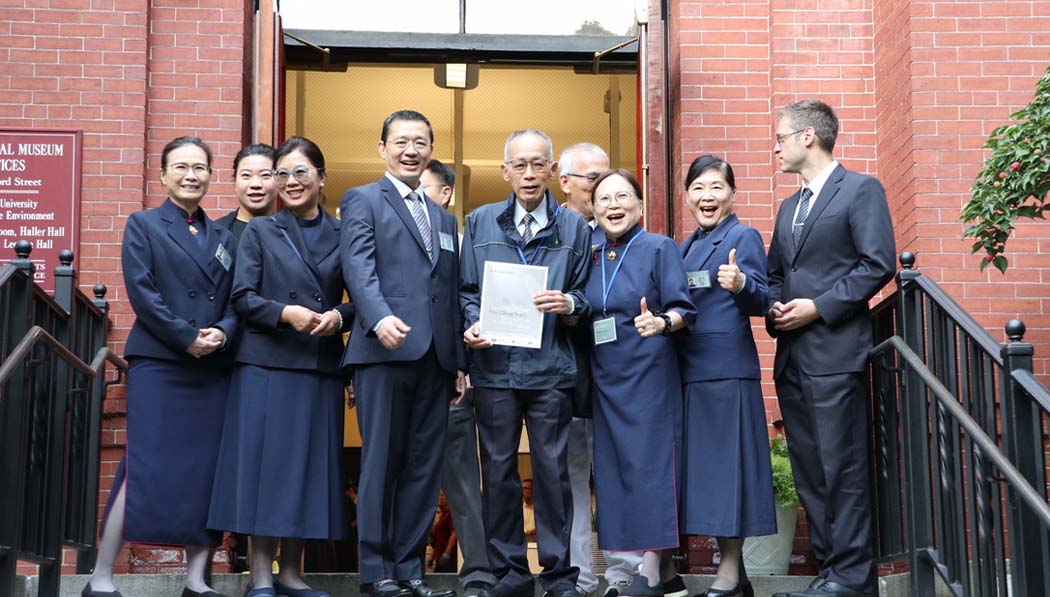
Overall, the Symposium offered valuable and groundbreaking insight into Ven. Cheng Yen’s leadership philosophy and compassionate leadership style. For those within Tzu Chi, like Ven. Dharma Master De Chen from the Jing Si Abode, opportunities like this only help to further Tzu Chi’s mission of compassion in action. “If everyone can gain a better understanding and knowledge of how external experts and scholars view Tzu Chi, it will undoubtedly foster greater recognition and acceptance of Tzu Chi,” she explains. Po-Wen Yen, the Chief Executive Officer of the Tzu Chi Charity Foundation, agrees:
I believe that with the help of forums like this, and with continued promotion, Tzu Chi has the potential to become an influential religious and charitable organization.
Still, beyond Tzu Chi’s own projects, with a philosophy rooted in compassion, empathy, and ethical conduct, Ven. Cheng Yen acts as a model for leaders facing the complex challenges of our time. Whether they relate to climate change impacts around the world, social and economic inequalities, public health crises, and so much more. Ven. Cheng Yen’s leadership style serves as a timeless example for leaders across the globe who seek to make a positive impact on their communities and the world at large.
SHARE:

